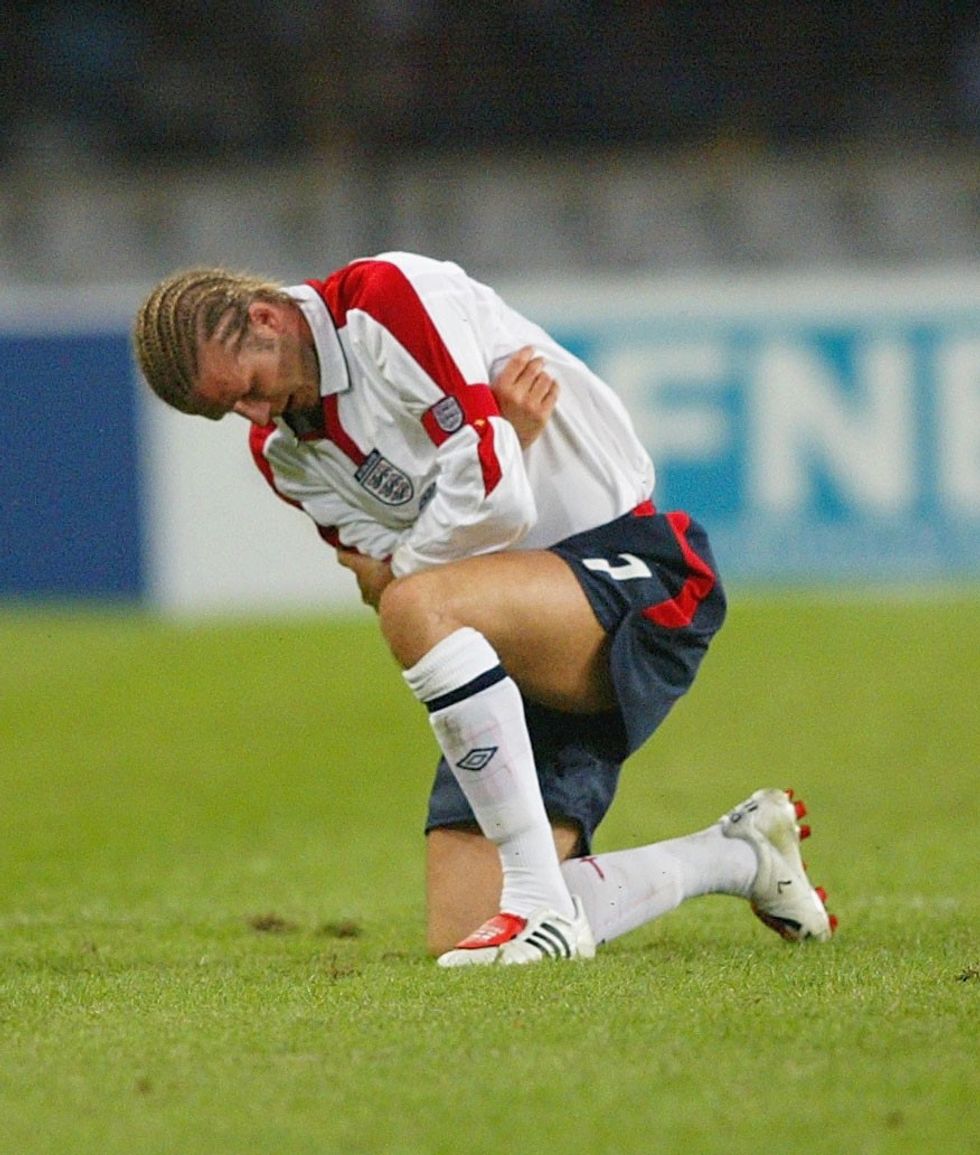By S Neeraj Krishna
USMAN KHAWAJA, the first Muslim to play Test cricket for Australia, has spoken out on getting "racially vilified" in his career, and the urgent need to boost diversity in the sport.
The Pakistan-born batsman, who had debuted against England in 2011, said players from the Indian subcontinent were often perceived as "lazy".
Khawaja, 33, will soon be joining a Cricket Australia working group "tasked with creating an action plan focusing on greater cultural diversity and inclusion".
One of the primary problems on his radar was "people getting disheartened if they get racially vilified when they're coming up through the ranks".
Citing his own experience, the left-handed batsman told cricket.com.au: "The amount of times I heard, 'They won't pick you', 'You won't fit in' – if enough people keep saying that to you, you might start actually believing it."
Khawaja said he faced "both overt and casual" racism in his career.
"But I had the confidence to speak up when something didn't feel right, and I know not everyone does," he added.
"Kids need to be given support. We need to let them know, 'Hey, you're not the only person going through this, we've been through this, we've seen this, we've dealt with it and we've pushed on. You can do the same thing'.
"I think that's a really important message, because it can be demoralising when you feel left out or segregated. Until you've been in that situation, you don't know what it feels like."
Khawaja also recalled how he "always had that 'lazy' undertone" while growing up.
"I think part of that was my relaxed nature but part of it was also because I was Pakistani, and subcontinent people were seen as lazy, not doing the hard yards and whatnot," he added.
"Running has never been natural to me, so when we used to do lots of fitness testing… I wasn't as good as everyone else. When you put that against where I was from, that did play against me.
"I like to think we're starting to move on from that, but there's definitely still that undertone... I still hear (such stereotypes), if someone's a bit different."
Khawaja, whose family moved to Australia when he was five, went on to become the country's top-most Asian-origin cricketer, playing 93 international matches since 2011.
"The older I've gotten, the more I've realised that when it comes to diversity – especially in cricket in general – I think we've been OK at it but we're still just not quite there," he said.
"If you look at the landscape in terms of multicultural cricketers around, we've got a few subcontinental cricketers – myself, Gurinder (Sandhu), Arjun Nair, Jason Sangha and Tanveer Sangha coming up through the ranks… (but) we've still got a long way to go."
Khawaja urged upcoming players to fight whatever setbacks they may face, and to follow "your dream and your passion".
"Because when you do come up through the ranks now, everyone – from Cricket Australia to the teammates you'll have – they are all great people," he said.
"They don't give a crap who you are or where you come from."
Khawaja said he also had a discussion on diversity with former Cricket Australia chief executive Kevin Roberts, who resigned in June.
"I called up Kevin Roberts… I said: 'Look, I know there's a lot of stuff going on with coronavirus, there's cost cutting going on, but cultural diversity in cricket, it's something I'm really passionate about, so if you need any help from me, please reach out.
"During this time we're living in, there are a lot of civil rights issues going on, especially in America with the Black Lives Matter movement.
"We can't just stick our heads in the sand and say, 'Everyone's perfect, everything's fine, and there's no way for us to improve'.
"We can improve in so many different ways and this is just one of them."
At the end of the day, said Khawaja, sports was one of the best ways to break barriers and boost multiculturalism in society.
"A big reason why I love sports is because when I first came to Australia, I couldn't speak English, and the only thing I could do (to mix with other kids) was play sports," he said.
"It breaks down all barriers. That's what I'm trying to push, and that's why the Usman Khawaja Foundation started, too – trying to break down those barriers, to teach parents, 'Hey, this is the best way to do it, get them into sports'.
"It doesn't matter what sport. Giving these kids the right opportunities to allow them to excel and exceed is so important."





 Victoria Beckham's story Instagram screengrab/
Victoria Beckham's story Instagram screengrab/ Victoria Beckham's story Instagram screengrab/
Victoria Beckham's story Instagram screengrab/ David Beckham of England feels the pain in his arm after being tackled and upended by Thabang Molefe of South AfricaGetty Images
David Beckham of England feels the pain in his arm after being tackled and upended by Thabang Molefe of South AfricaGetty Images 










 Prabhas in a still from Kalki 2898 AD which completed one yeargetty images
Prabhas in a still from Kalki 2898 AD which completed one yeargetty images Kalki 2898 AD became one of the top three biggest openers in Indian cinemagetty images
Kalki 2898 AD became one of the top three biggest openers in Indian cinemagetty images Kalki 2898 AD brought together sci-fi and mythology in a first-of-its-kind Indian filmgetty images
Kalki 2898 AD brought together sci-fi and mythology in a first-of-its-kind Indian filmgetty images Prabhas plays the futuristic warrior Bhairava in Kalki 2898 AD getty images
Prabhas plays the futuristic warrior Bhairava in Kalki 2898 AD getty images Prabhas in action during a high-intensity sequence from Kalki 2898 ADgetty images
Prabhas in action during a high-intensity sequence from Kalki 2898 ADgetty images
 Kulsuma Aktergetty images
Kulsuma Aktergetty images